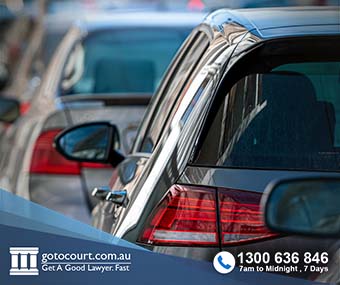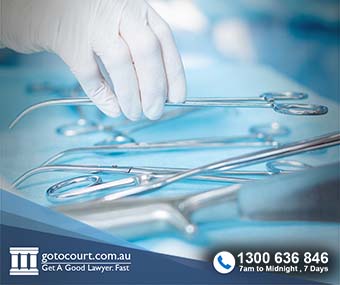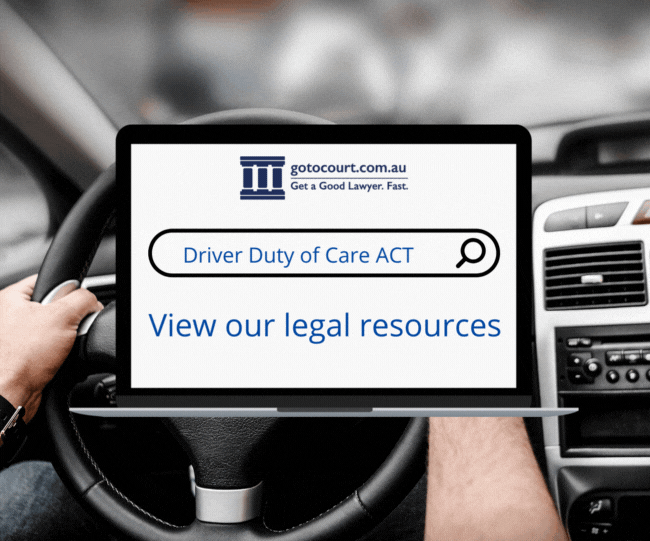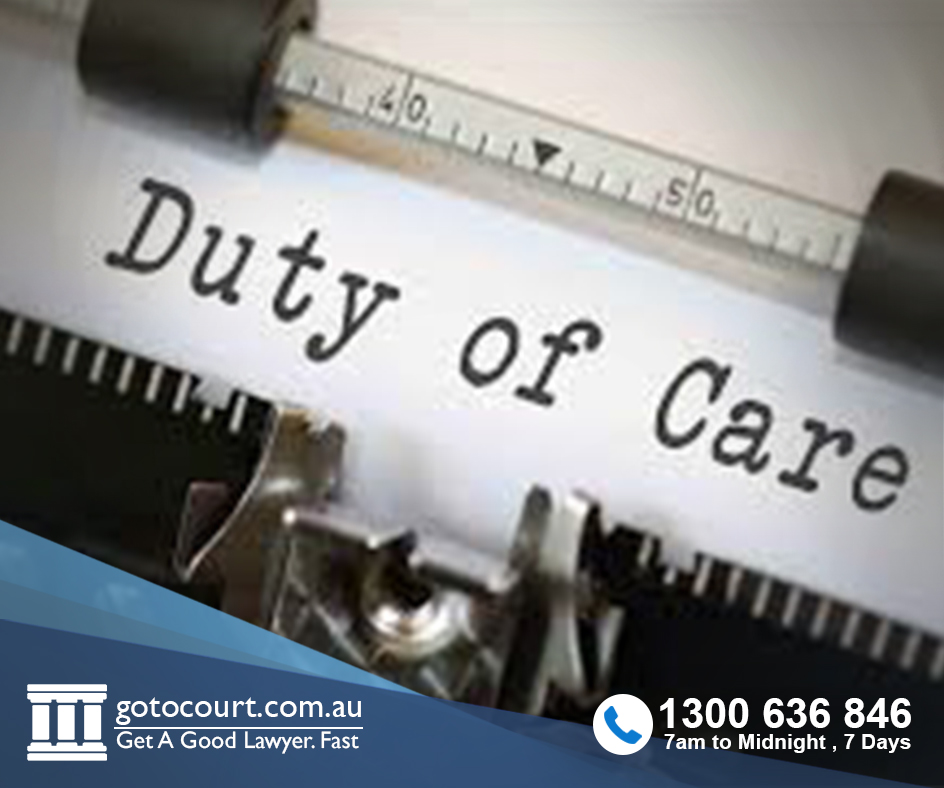Personal Injury Law in the Australian Capital Territory
Personal injury law in the ACT is often referred to as negligence. The Civil Law (Wrongs) Act 2002 regulates negligence claims in the ACT.
To claim compensation for a personal injury, you must be able to prove to the court the following:
- The other party (the defendant) owed you a duty of care; and
- That duty of care was breached by the defendant because they failed to do something (omission) or because they did something wrong; and
- You were injured as a direct consequence of the defendant’s breach. This is known as causation.
In the ACT, time limits apply under the Limitation Act 1985. You have three years to lodge your personal injury claim in the ACT.
If you believe you have a negligence case or you have been injured and are unsure of what to do next, it is important to speak with a lawyer. As your particular circumstances may change what benefits are available to you, getting sound and professional legal help is important.
Recommended Resources
ACT Compensation Resources
Duty of Care in the Australian Capital Territory
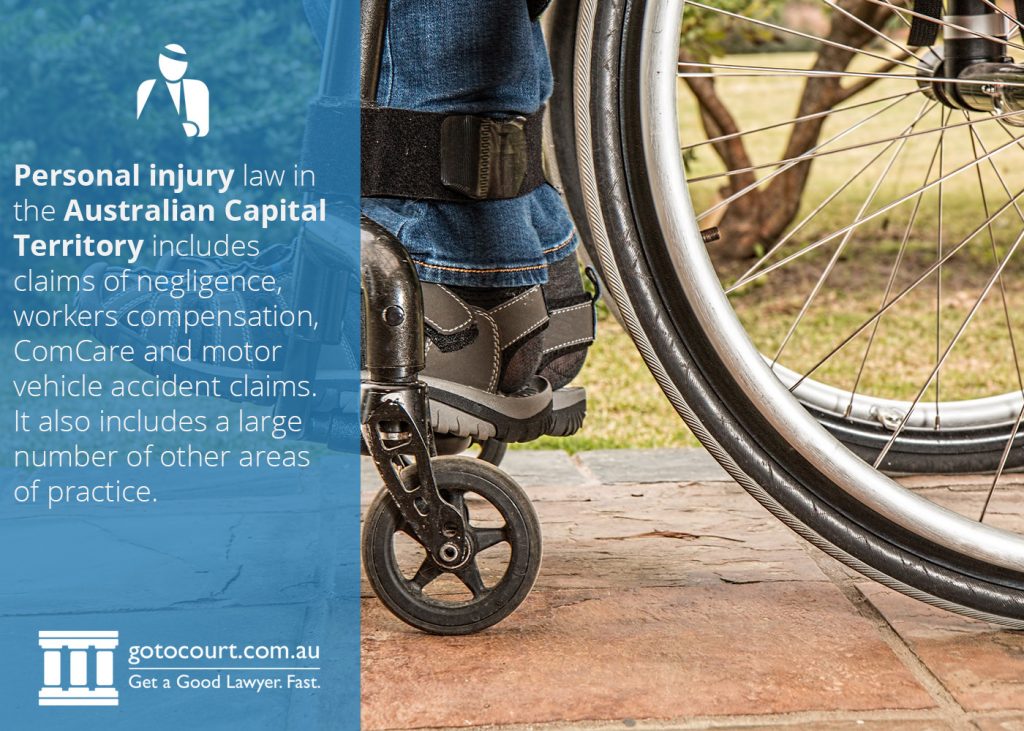
Workers compensation and ComCare
There are a number of different ways to claim compensation for a workplace injury in the ACT:
- Through Access Canberra under the Workers Compensation Act 1951;
- If you are an employee of the government or agency, or a licensed organisation, through ComCare under the Safety, Rehabilitation and Compensation Act 1988 (Cth);
- As a negligence claim under the Civil Law (Wrongs) Act 2002 if your injuries were caused by your employer’s negligence.
Workers compensation claims
Under the Workers Compensation Act 1951, a claim can be made with Access Canberra for the following benefits and compensation pay-outs:
- Weekly payments to cover lost income. These amounts will depend on whether the workplace accident resulted in a total or partial incapacity to work;
- Weekly benefits from the date of the injury until the claim is finalised;
- Reimbursements for medical treatment, travel expenses for transport to and from treatment as well as accommodation;
- A lump sum payment for permanent injuries which are listed in Schedule 1 of the Workers Compensation Act 1951. This is calculated on an indexed amount and depends on whether you suffer total or partial loss; and
- A lump sum for the death of a family member, including funeral costs.
For those who are suffering from workplace-related deafness, you can make a claim with Access Canberra. You must establish that more than six percent of your binaural hearing has been lost as a result of employment activities. Age is also factored in when determining a claim of hearing loss.
Comcare
For Australian public service employees and employees of licensed organisations, you can apply for compensation under the Safety, Rehabilitation and Compensation Act 1988 (Cth). At the time of writing, licensed organisations include:
- Testra;
- Optus;
- Linfox;
- Australia post;
- K & S Freighters;
- Border Express;
- TNT Australia;
- Commonwealth Bank of Australia;
- National Australia Bank;
- Chubb; and
- John Holland.
Claims for compensation or benefits under ComCare can be made if you suffered injury in either of the following situations:
- You were at work; or
- You were travelling on an approved work activity.
Claims for diseases suffered as a consequence of work conditions, including psychological illness, can also be made. To be successful, your employment must have significantly contributed to your disease.
There are a number of exceptions to ComCare compensation benefits where payments would not be made. These include:
- Injuries suffered travelling to and from work;
- Self-inflicted injuries and injuries caused by wilful and serious misconduct; and
- Diseases, aggravations of previous injuries, or injuries suffered as a result of reasonable administrative action.
Reasonable administrative action includes performance appraisals, counselling, suspension of employment, disciplinary action, and anything done in connection with your failure to be promoted, transferred or obtain benefits.
ComCare pays compensation for injuries which result in death, incapacity and impairment. There are a number of other damages which can be claimed under the Safety, Rehabilitation and Compensation Act 1988 (Cth).
As your particular circumstances may be different, it is important to consult a lawyer if you have been injured at work or are considering a ComCare claim.
Public liability
There are different rules which apply to public liability personal injury claims in the ACT. These depend on whether a government or governmental agency was at fault or if the negligent party is a private occupier (such as an individual).
Compensation is awarded for public liability claims in the following circumstances:
- Illness or injuries caused by dangerous or unsafe food;
- Injuries caused by slip and fall accidents; and
- Sporting and leisure activities resulting in injury. Such as trampoline, skiing and horse riding accidents.
It must be shown that the responsible party owed you a duty of care and you were injured as a result of the responsible party breaching their duty of care. The breach could be either a failure to act or a wrongful act.
Defective products
When you are harmed as a result of a good or product malfunction, you are entitled to compensation. In these cases, both the Civil Law (Wrongs) Act 2002 and the Australian Consumer Law (under the Competition and Consumer Act 2010) will apply.


